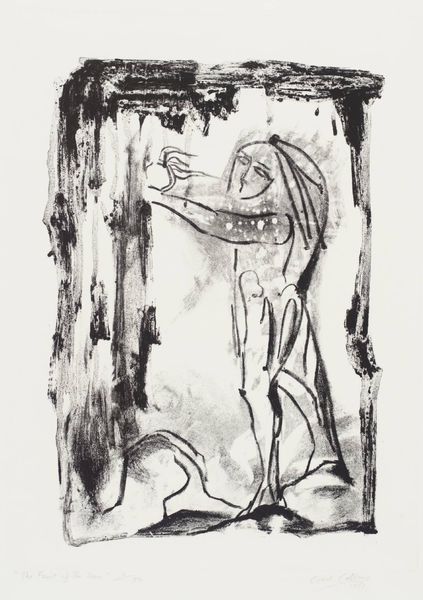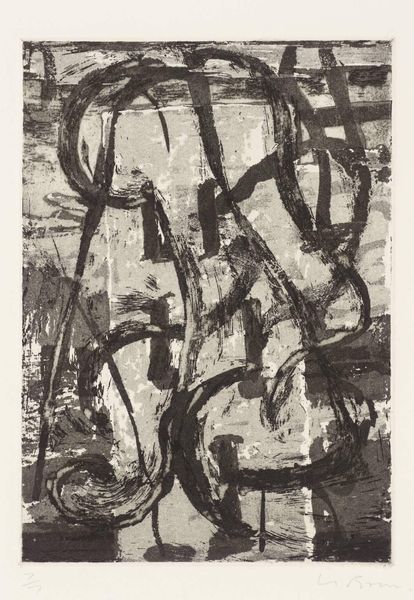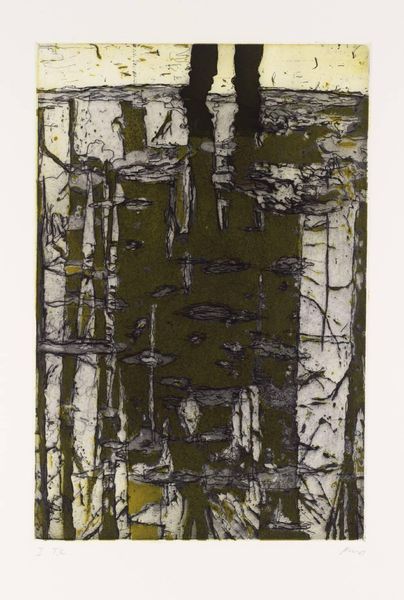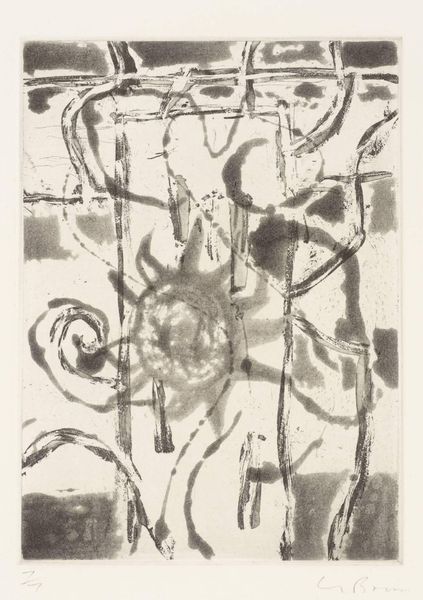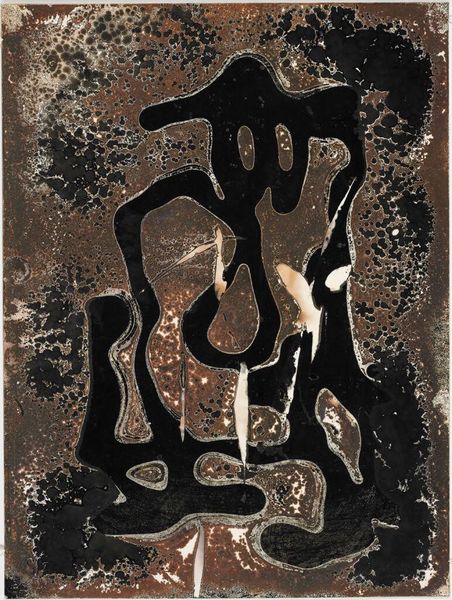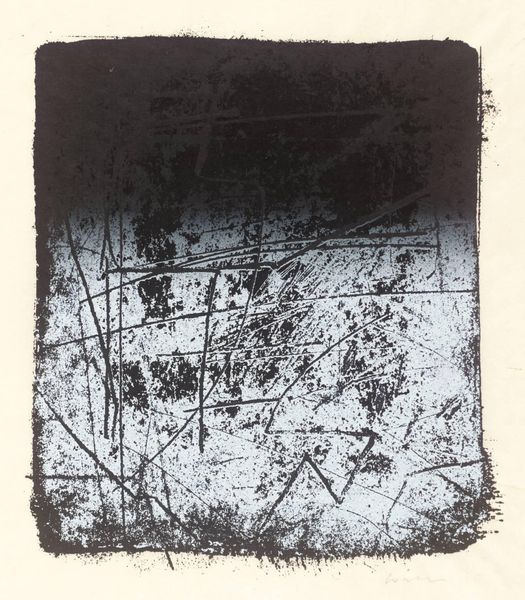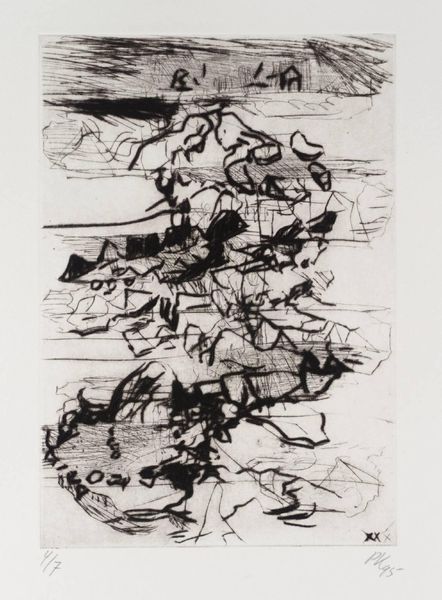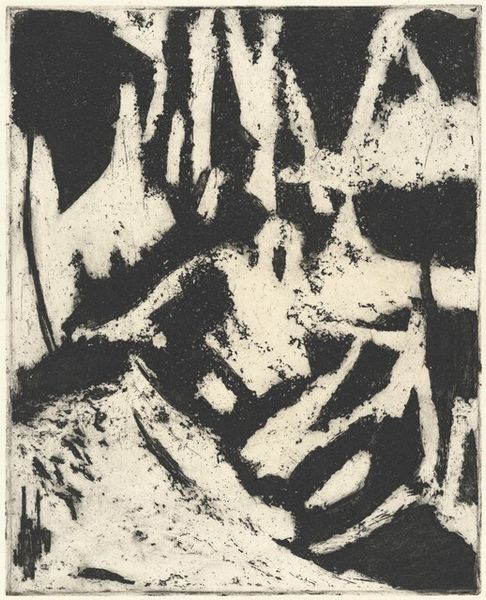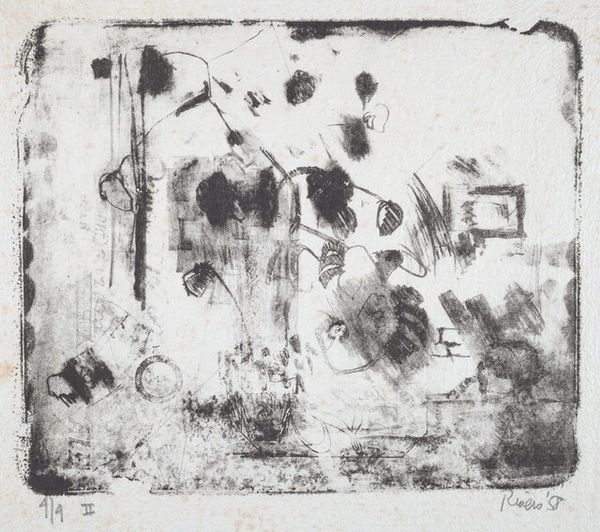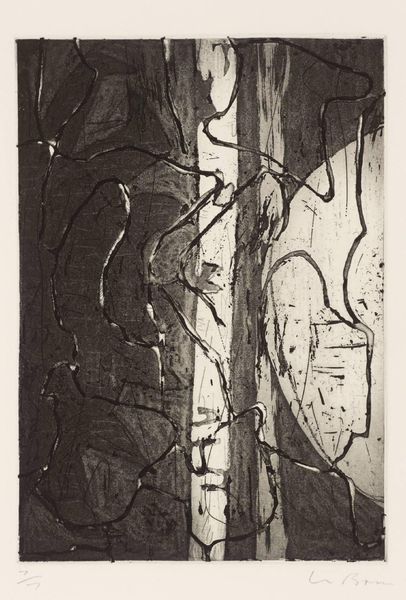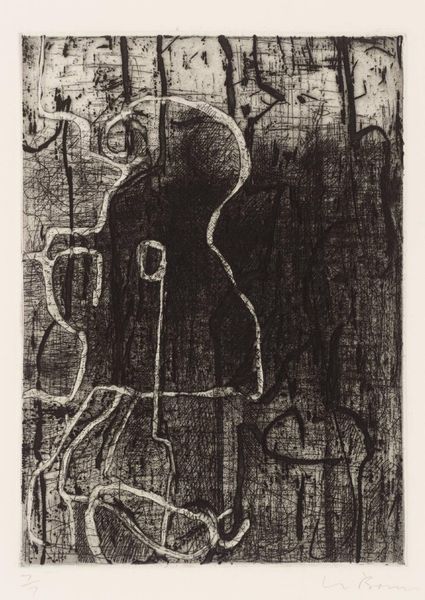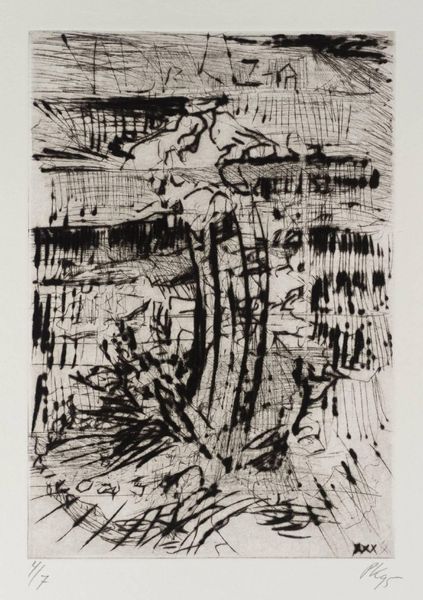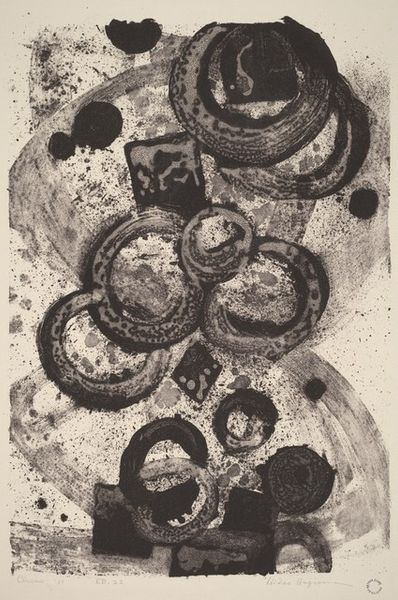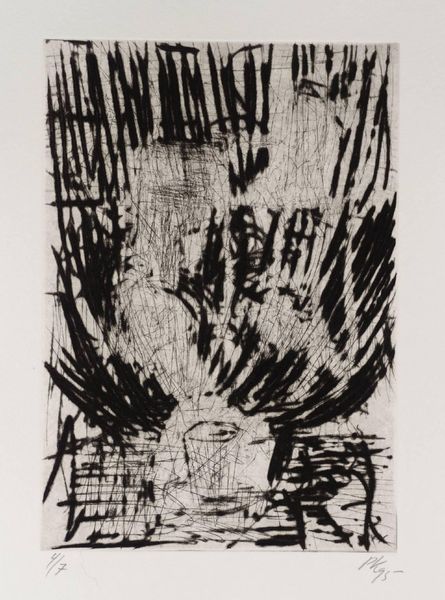
Dimensions: image: 308 x 176 mm
Copyright: © Alan Davie | CC-BY-NC-ND 4.0 DEED, Photo: Tate
Curator: This is Alan Davie’s "Two Insects, Yellow," held in the Tate Collections. It's a small work, just over 30 centimeters in height. The artist, born in 1920, was known for his spontaneous and often symbolic imagery. Editor: My first thought is how the layering of textures creates a buzzing, almost vibrating effect. It’s quite raw. I’m immediately drawn to the materiality of this image, the way the ink sits on the paper. Curator: Absolutely. Davie was fascinated by Surrealism and Zen Buddhism. He often used chance and improvisation in his process, allowing for a sense of immediacy. This affected the imagery. Editor: It's interesting to consider the labor involved, too. The printmaking process itself—the application of the ink, the pressure—contributes to the overall feel of the work. It gives it a tactile quality, even in reproduction. Curator: It’s important to remember how Davie positioned himself in the postwar British art scene, critiquing the established hierarchies. Editor: Yes, and the choice of printmaking, a medium often associated with mass production, feels deliberate. It subverts notions of preciousness and the artist’s hand, making it accessible. Curator: Ultimately, this piece reveals the power of abstraction to suggest and evoke, rather than simply represent. Editor: A wonderful example of how materials and processes can transform seemingly simple imagery into something truly resonant.
